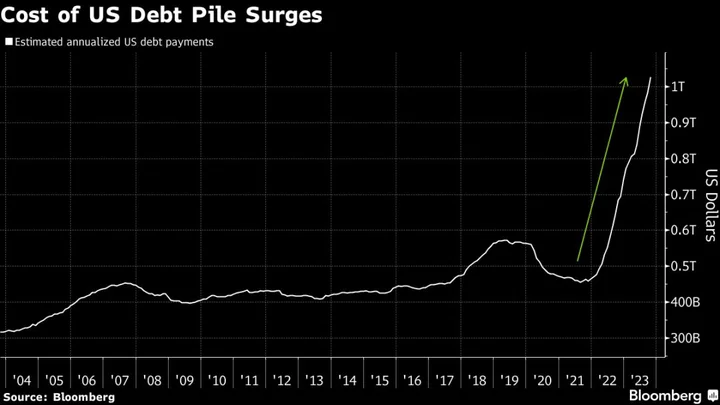US Treasuries may face renewed selling pressure into the new year if one measure of the nation’s swelling debt repayment bill is any guide.
Estimated annualized interest payments on the US government debt pile climbed past $1 trillion at the end of last month, Bloomberg analysis shows. That projected amount has doubled in the past 19 months from the equivalent figure forecast around the time.
The estimated interest expense is calculated using US Treasury data which state the government’s monthly outstanding debt balances and the average interest it pays.
Of course, the gauge of estimated interest costs is different than what the Treasury actually paid. Interest costs in the fiscal year that ended Sept. 30 ultimately totaled $879.3 billion, up from $717.6 billion the previous year and about 14% of total outlays.
But, looking forward, the rise in yields on long-term Treasuries in recent months suggests the government will continue to face an escalating interest bill.
The worsening metrics may reignite debate about the US fiscal path amid heavy borrowing from Washington. That dynamic has already helped drive up bond yields, threatened the return of the so-called bond vigilantes and led Fitch Ratings to downgrade US government debt in August.
“There will be further increases to Treasury coupon auctions and T-bills outstanding going forward,” Bloomberg Intelligence strategists Ira Jersey and Will Hoffman wrote in a research note. “Besides deficits of over $2 trillion in the foreseeable future, climbing maturities following the increase of issuance from March 2020 will also need to be refinanced.”
Why US Deficit Is a Worry Again, and Will Remain So: QuickTake
(Updates to clarify methodology of interest-cost calculation.)









